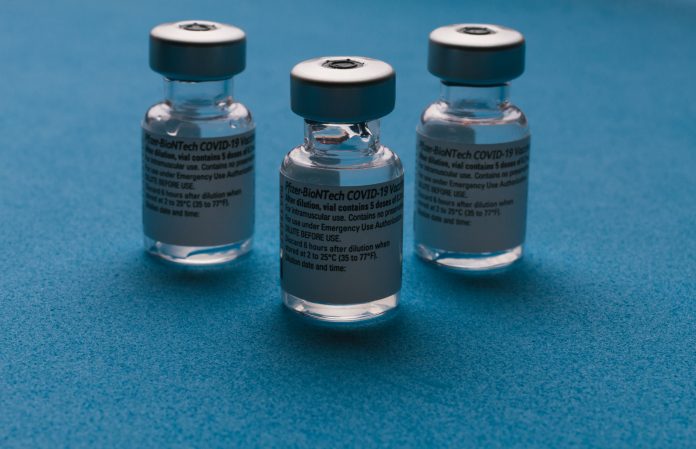BioNTech reveal plans to ship mobile mRNA vaccine factories to some countries in Africa – with vaccine manufacturing expected only in late 2023
Two of the specially-designed shipping containers together – at 800 square metres – are projected to produce 50 million doses of the Pfizer COVID vaccine, annually. The ‘BioNTainer’ is expected to arrive in mid-2022, with manufacturing of Pfizer vaccines beginning 12 months after.
Resultant vaccines are expected to be available in host countries, only in late 2023.
Where will the mRNA factories go?
The mobile mRNA factories are expected to be received in Rwanda, Senegal and potentially South Africa – depending on close coordination with the African Union. The pharmaceutical company emphasises that local organisations will need to figure out the infrastructure.
The containers are being sent as a work-around for existing intellectual property laws, which limit pre-existing factories from manufacturing the COVID vaccine across the world. Currently, the European Union remains opposed to a temporary waiver that would enable countries to manufacture the COVID vaccine themselves.
Dr. Tedros Adhanom Ghebreyesus, WHO Director-General: “We welcome BioNTech’s initiative to increase vaccine production in Africa, as a complement to WHO’s mRNA technology transfer hub in South Africa and its network of ‘spokes’ around the world.”
120 factories already exist, legally bound against creating vaccines
An investigation by Médecins Sans Frontières (MSF) found that there are factories in the recipient countries, already capable of producing mRNA vaccines.
In Senegal, there is the Institut Pasteur de Dakar, which is already in the WHO pre-qualification database for vaccines. In South Africa, there is Aspen Pharmacare, a company that has previously exported a medical product to the US.
The same investigation found 120 factories across the world – in South America, Asia and Africa – capable of creating mRNA vaccines, but legally unable to.
Before the mobile factories solution, the only route was donated vaccines via the WHO COVAX scheme and a long waiting list for buying vaccines from pharmaceutical companies.
The BioNTainer is expected to also be able to manufacture different mRNA vaccines, like a malaria and tuberculosis vaccine – both currently still under development.
Dr. Sierk Poetting, COO of BioNTech: “We have initiated the BioNTainer project in January 2021 after knowing that we had an approved mRNA-based vaccine. The modular production facilities are a big step in our journey to enable the production of high-quality mRNA vaccine manufacturing worldwide, with each BioNTainer becoming a node in a decentralized and robust African end-to-end manufacturing network.”











